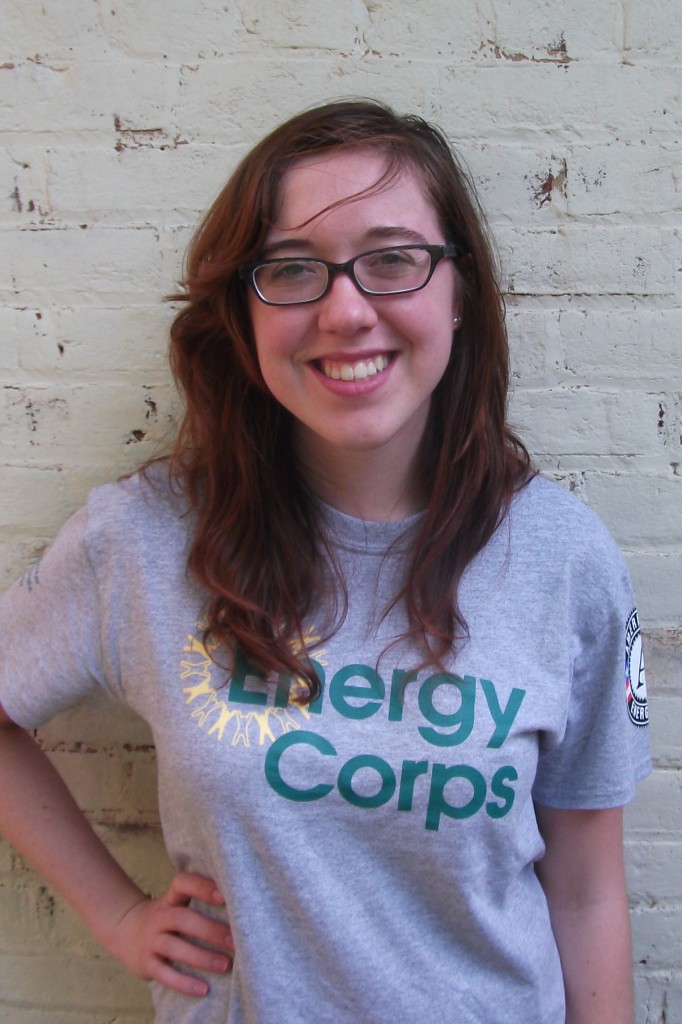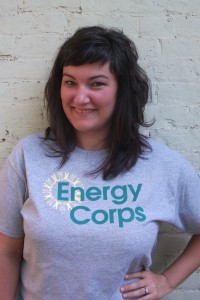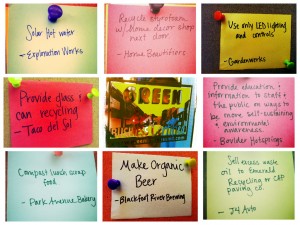Here’s a quick pop quiz question:
- Which resource provides most of the energy used in the U.S. each year?
- Petroleum
- Coal
- Natural Gas
- Water/Hydro power
- Nuclear energy
If you picked a. Petroleum, congratulations! You’re on the way to improving your general energy knowledge comprehension. Currently in the United States, just 12% of adults can pass a basic energy knowledge test. At the Applied Sustainability Center (ASC) at the University of Arkansas, I work with seven cities throughout the state to help city leaders and members of the public become aware of the economic, environmental, and health benefits of reducing energy consumption and investing in renewable energy technology.
The Sustainable Energy Scorecards and Education for Municipalities (SESEM) program consists of two parts: a Summer Energy Academy, in which city leaders learn about energy efficiency, renewable energy opportunities, and utility rebate programs available in Arkansas through a series of lectures and panels; second, a series of presentations in the SESEM cities for leaders and public citizens on energy efficiency opportunities. For the past month, I have been developing presentations for our city visits in the fall, working to include both facts about energy systems and suggestions for actions citizens can take to make homes more energy efficient. By educating community leaders and sharing effective smart growth policies among SESEM member cities, we hope to spark behavioral changes and improve public policies.
The ASC also works with the City of Fayetteville on their STAR Cities reporting data. STAR is essentially a self-assessment check-off list for cities to qualify to be considered a nationally recognized sustainable city. It is comprised of eight large goal areas: Built Environment, Climate and Energy, Economy and Jobs, Education, Arts, and Culture, Equity and Empowerment, Health and Safety, and Natural Systems.
In college, I majored in international relations, learning more about comparative political systems and theories of warfare than ecological systems and the ways in which I could reduce my energy consumption. Before college, environmentalism was barely mentioned in my community beyond half-hearted efforts to establish a recycling program and teachers reading “The Lorax” on Earth Day. I became passionate about sustainability when I began to educate myself on climate change and desertification. As EnergyCorps members, we work on the front lines, serving as both an educational resource and a wake-up call to communities that environmental health is essential to the health of a city. As the effects of climate change become increasingly apparent, we must find new ways to encourage people to reduce pollution and energy waste on the local level.
This week, the ASC hosted a webinar for SESEM cities on solar energy initiative that are being implemented at the local level in Missouri. Kansas City partnered with Brightergy, a renewable energy service provider, and through a solar leasing program is installing panels on 80 of its buildings. As Dennis Murphy, the Chief Environmental Officer with Kansas City, and Susan Brown, the VP of Public Affairs for Brightergy explained, public policy was the largest factor in the growth of Missouri’s solar industry. While both Missouri and Arkansas have net-metering and PACE (property assessed clean energy) financing, Missouri implemented a $2/watt solar rebate program which has been crucial in making renewable energy affordable in the state. In order for Arkansas to become a solar energy leader, we need to continue to implement rebate programs that encourage renewable industry development. I hope that the SESEM program and other environmental education programs will encourage cities to proactively fight climate change and support sustainable lifestyles.
 Elana Harrison is a recent graduate of Hendrix college with a major in International Relations and a Minor in German. She discovered a love for environmental policy while working with the Sierra Club’s Beyond Coal Campaign. She also worked as an intern with the Arkansas Public Policy Panel, where she tracked environmental, energy, and water-related policy during the 2013 session. Eland will be placed at the University of Arkansas’s Applied Sustainability Center, working on creating Energy Scorecards for municipalities around the state. She will work with eight cities in Arkansas to assist with strategic energy planning as well as energy outreach and education.
Elana Harrison is a recent graduate of Hendrix college with a major in International Relations and a Minor in German. She discovered a love for environmental policy while working with the Sierra Club’s Beyond Coal Campaign. She also worked as an intern with the Arkansas Public Policy Panel, where she tracked environmental, energy, and water-related policy during the 2013 session. Eland will be placed at the University of Arkansas’s Applied Sustainability Center, working on creating Energy Scorecards for municipalities around the state. She will work with eight cities in Arkansas to assist with strategic energy planning as well as energy outreach and education.








